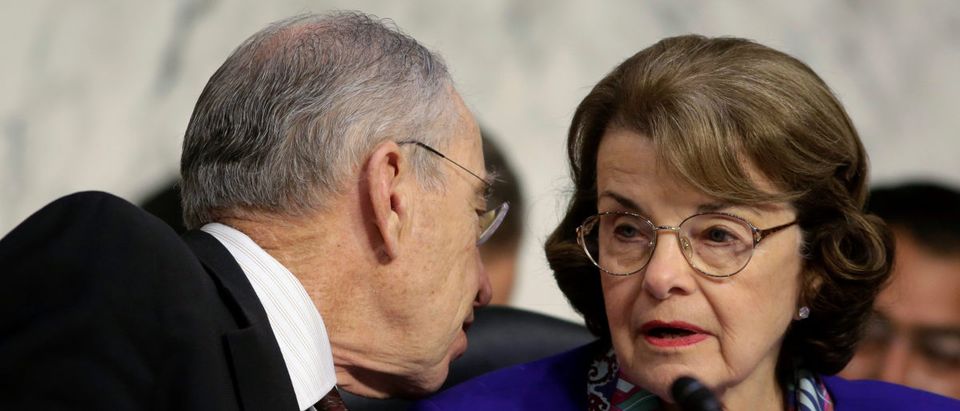The Senate Judiciary Committee approved Iowa Senator Chuck Grassley’s sentencing reform bill in a 16-5 vote Thursday, a result Grassley has achieved before only for the bill to die in the Senate.
Grassley’s fellow Republicans accounted for all five of the votes against the Sentencing Reform and Corrections Act (SRCA), while it enjoyed universal support from the committee’s 10 Democrats. If passed into law, the bill would reduce mandatory minimum sentences for certain drug and violent offenses as well as introduce prison reforms aimed at cutting recidivism rates. Grassley, a Republican, found himself in a similar situation in the last Congress, where his 2015 version of the SRCA made it out of committee, but was never called for a vote in the Senate.
Texas Sen. Ted Cruz, a Republican, voted against the bill, arguing its retroactive effect went too far in allowing current inmates to petition to have their sentences reduced. Utah Senator and fellow Republican Orrin Hatch argued the bill didn’t go far enough, claiming it should include “mens rea” reforms, which take into account whether an offender had criminal intent.
Only Louisiana Sen. John Kennedy, a Republican, expressed a fundamental opposition the bill, claiming sentencing reforms in his home state had been a “disaster.” His home state has the highest incarceration rate in the country, a reality the state legislature tried to change in 2017 with a 10-bill criminal justice package.
The White House has also been hesitant to embrace sentencing reform, with President Donald Trump endorsing only prison reforms in his State of the Union address. His son-in-law and senior advisor Jared Kushner butted heads with Attorney General Jeff Sessions on how far the administration’s reforms should go. Kushner wants sentencing and prison reform, but Sessions is a long-time advocate for “tough on crime” policies in courtrooms and prisons. For now, the pair appear to have reached a compromise in which Sessions won’t speak out against prison reforms and Kushner won’t try to cut sentences.
In line with that compromise, Sessions wrote a letter slamming Grassley’s bill as a “grave error” Wednesday because it includes both prison and sentencing reforms. Grassley replied with a statement on Twitter saying he was “incensed” by Sessions’ opposition – a feeling he reiterated in his opening remarks Thursday.
“[Sessions] is now the Attorney General and is charged with executing the laws that Congress passes, not interfering with the legislative process,” Grassley said. “Certainly we value input from the Department of Justice, but if General Sessions wanted to be involved in marking up this legislation, maybe he should have quit his job and run for the Republican Senate seat in Alabama.”
The future of sentencing reform is now in the hands of Senate Majority Leader Mitch McConnell, who chose not to bring Grassley’s 2015 version to a vote in the 114th Congress.
Send Tips: anders@dailycallernewsfoundation.org

The Daily Caller News Foundation is working hard to balance out the biased American media. For as little as $3, you can help us. Make a one-time donation to support the quality, independent journalism of TheDCNF. We’re not dependent on commercial or political support and we do not accept any government funding.
All content created by the Daily Caller News Foundation, an independent and nonpartisan newswire service, is available without charge to any legitimate news publisher that can provide a large audience. All republished articles must include our logo, our reporter’s byline and their DCNF affiliation. For any questions about our guidelines or partnering with us, please contact licensing@dailycallernewsfoundation.org.












